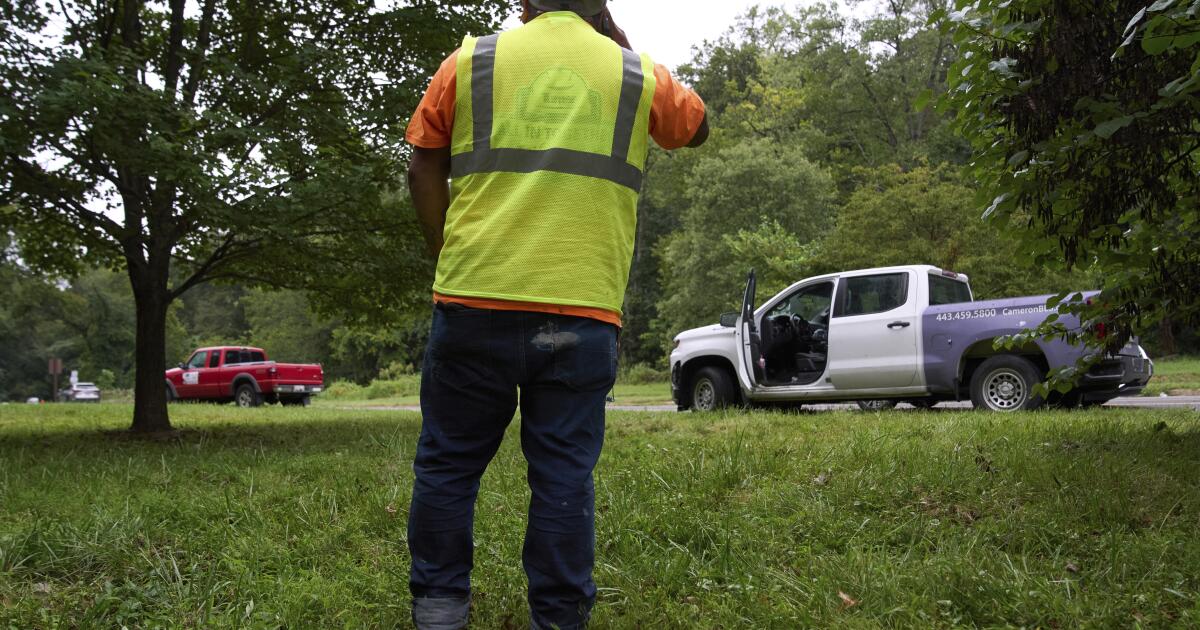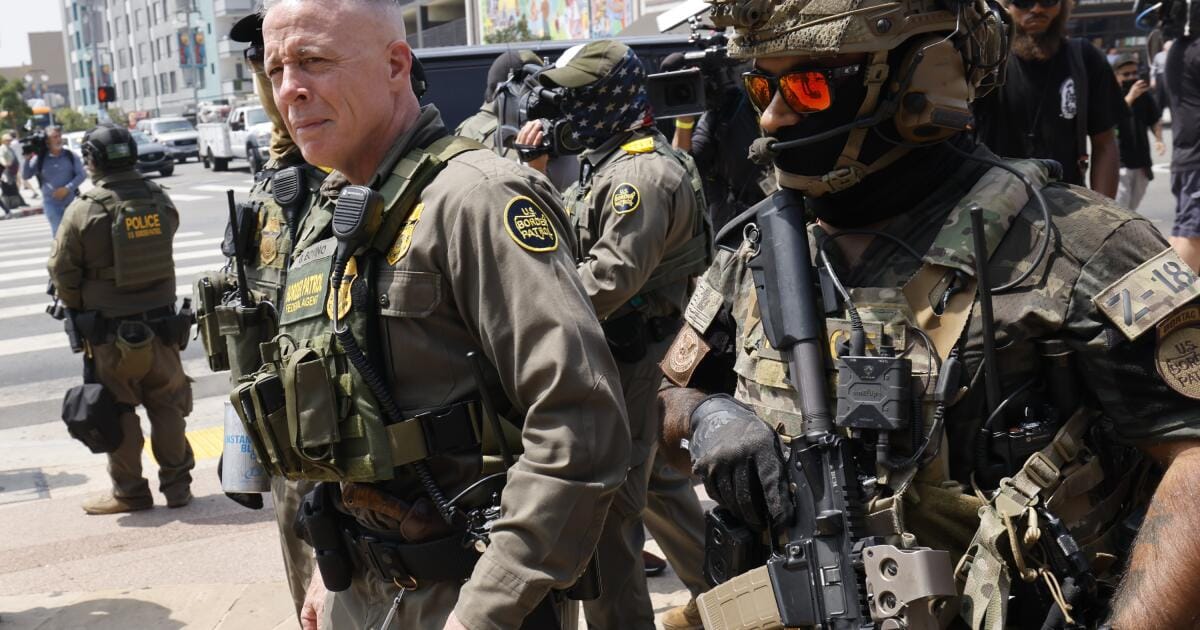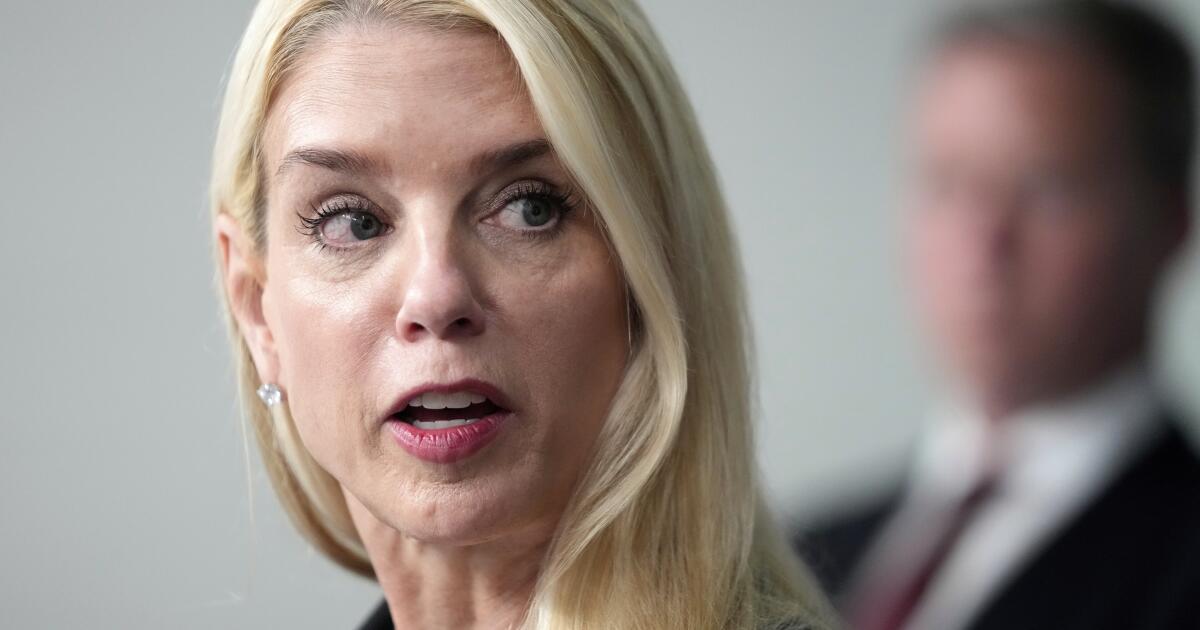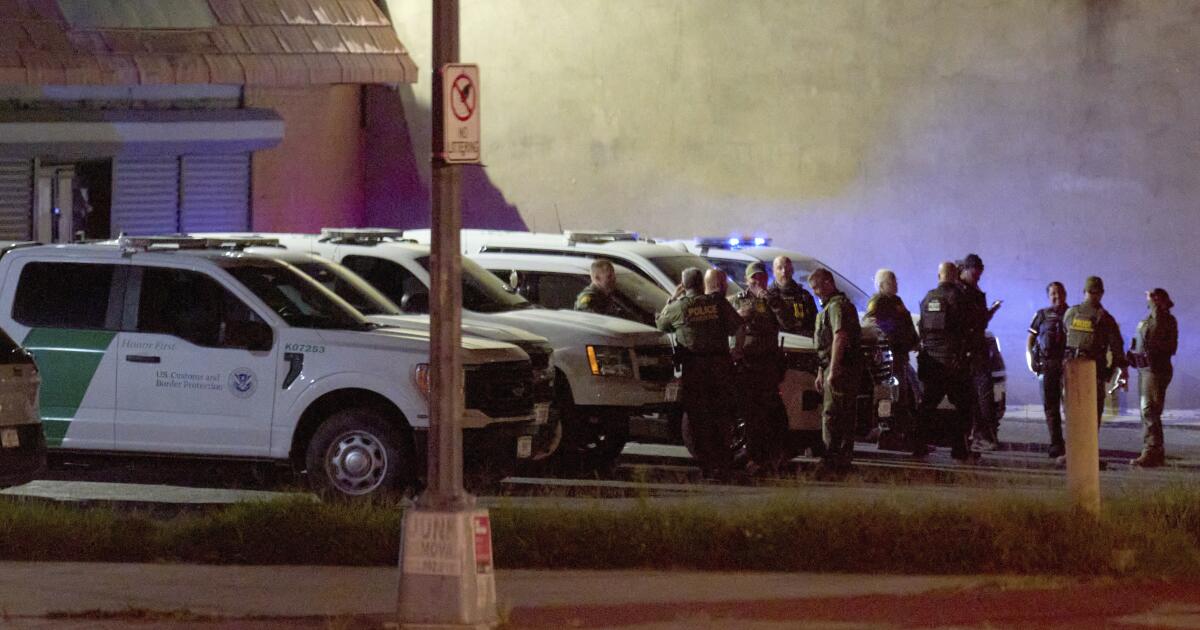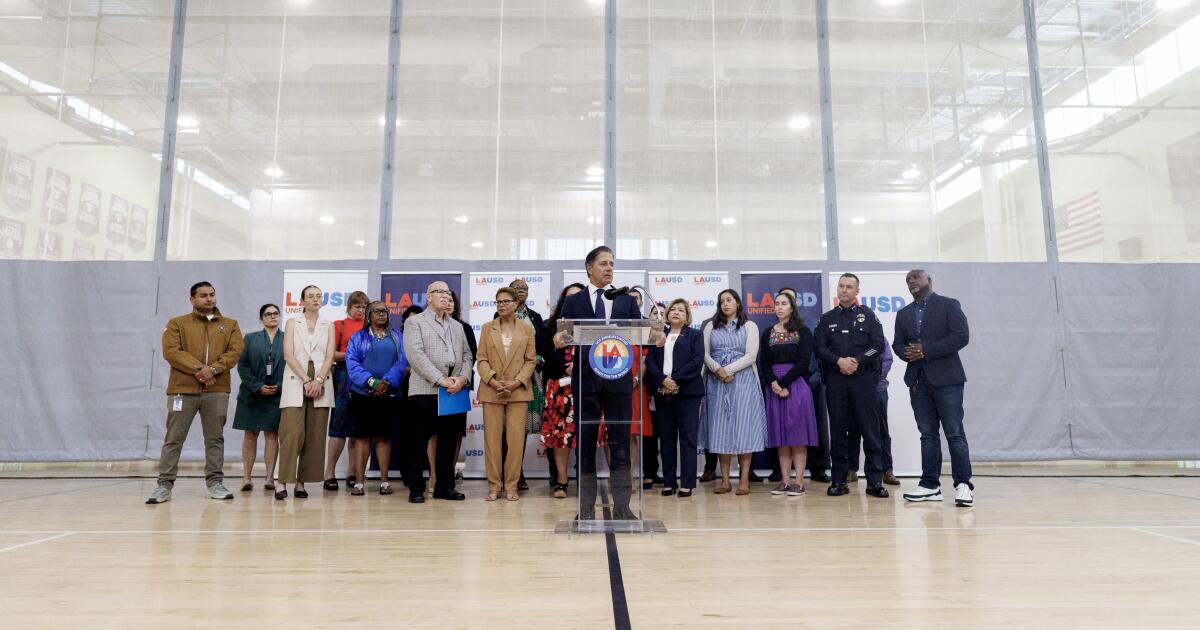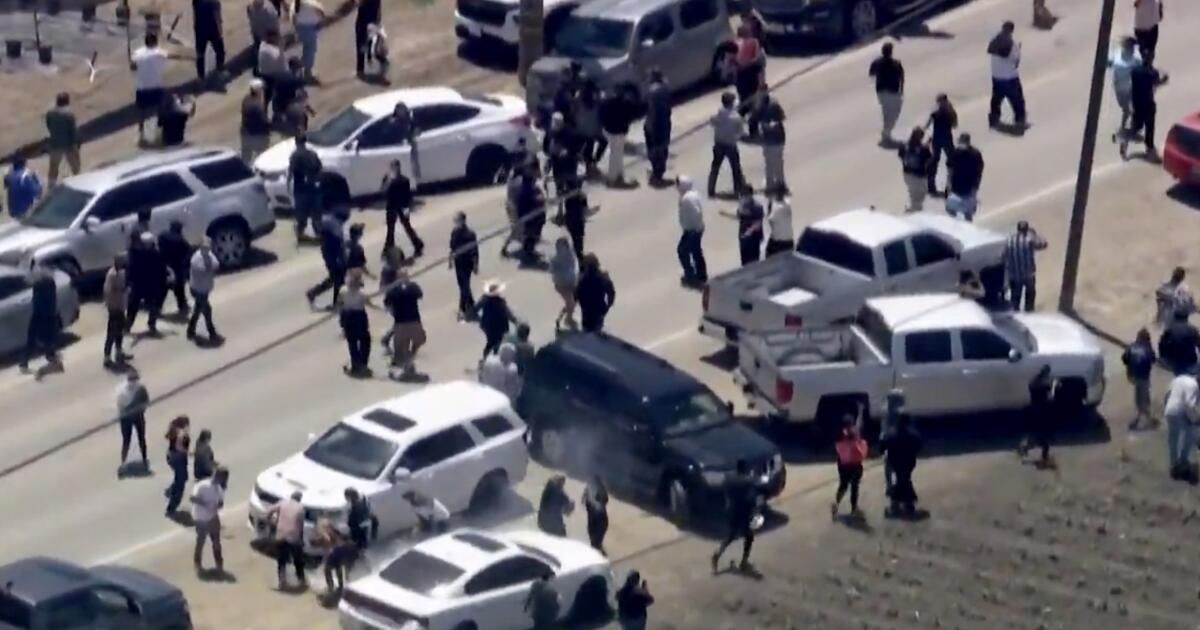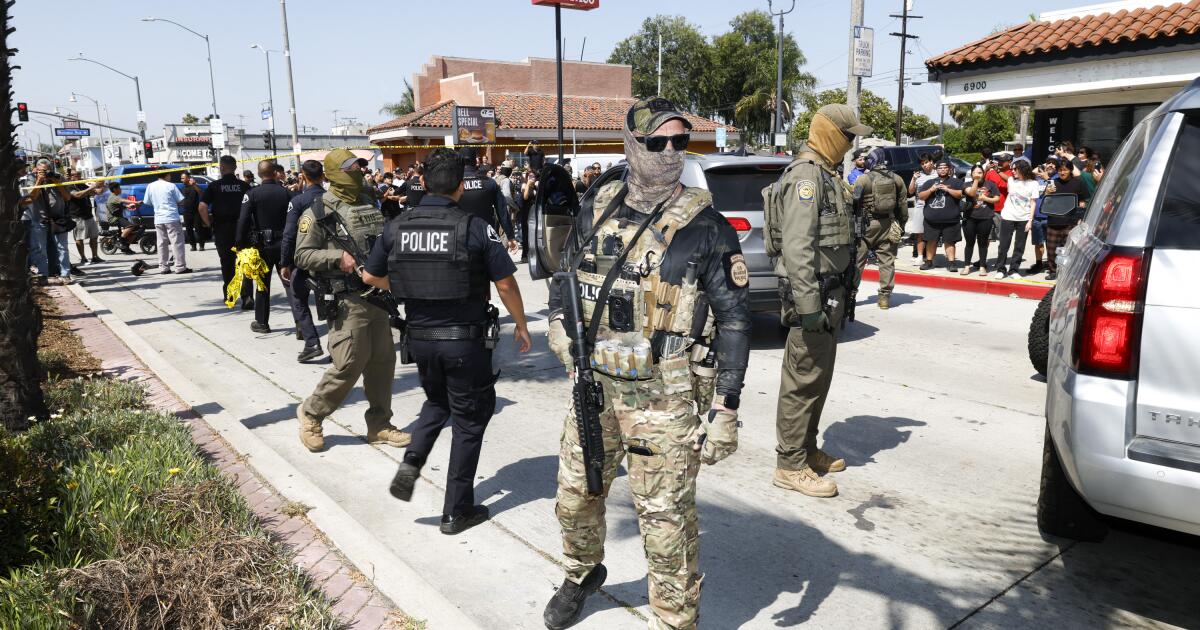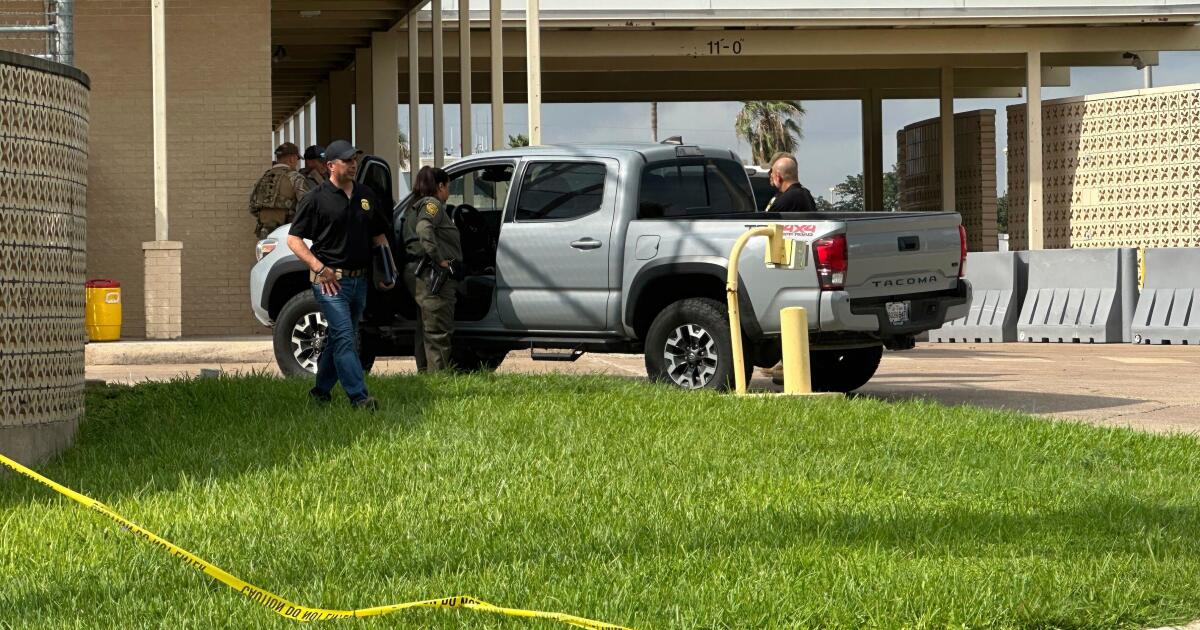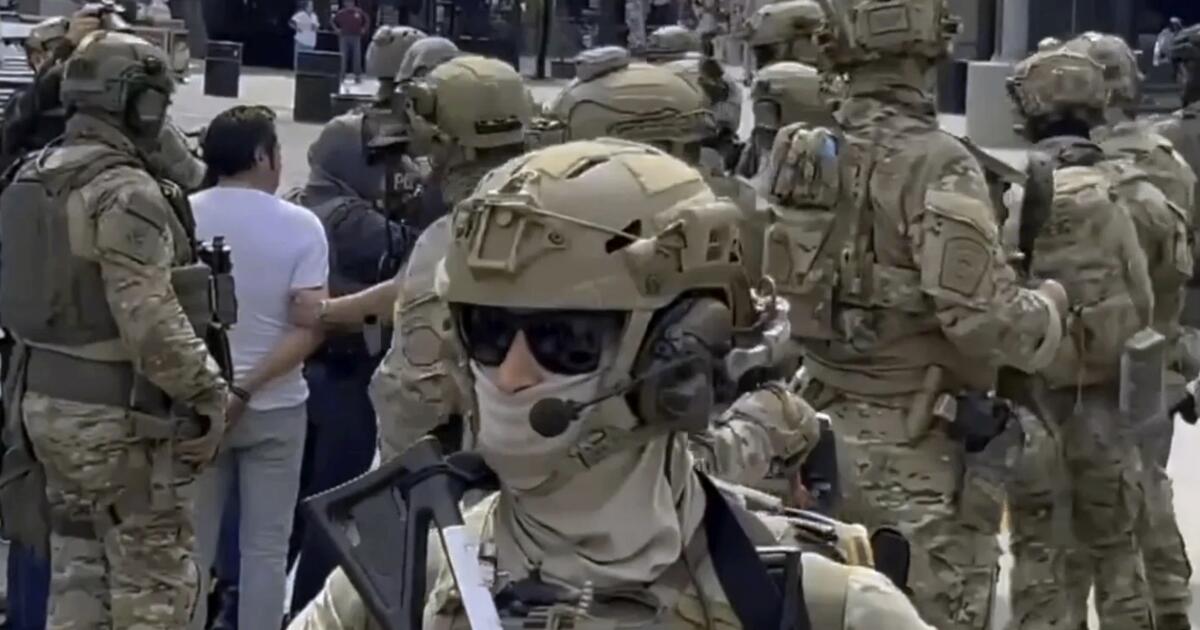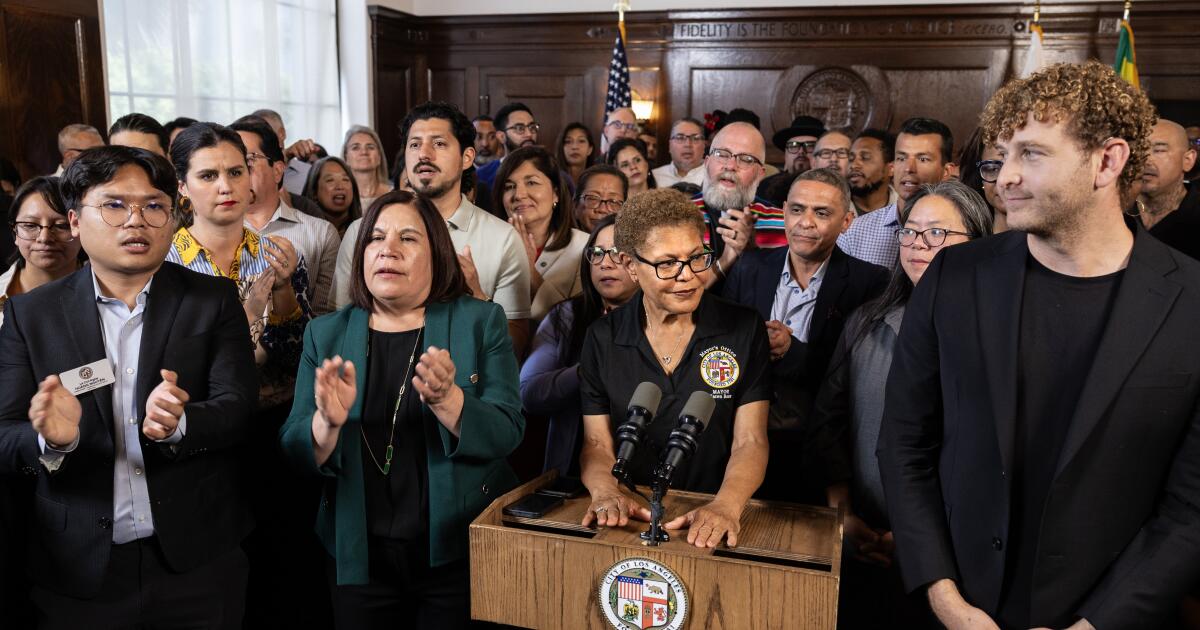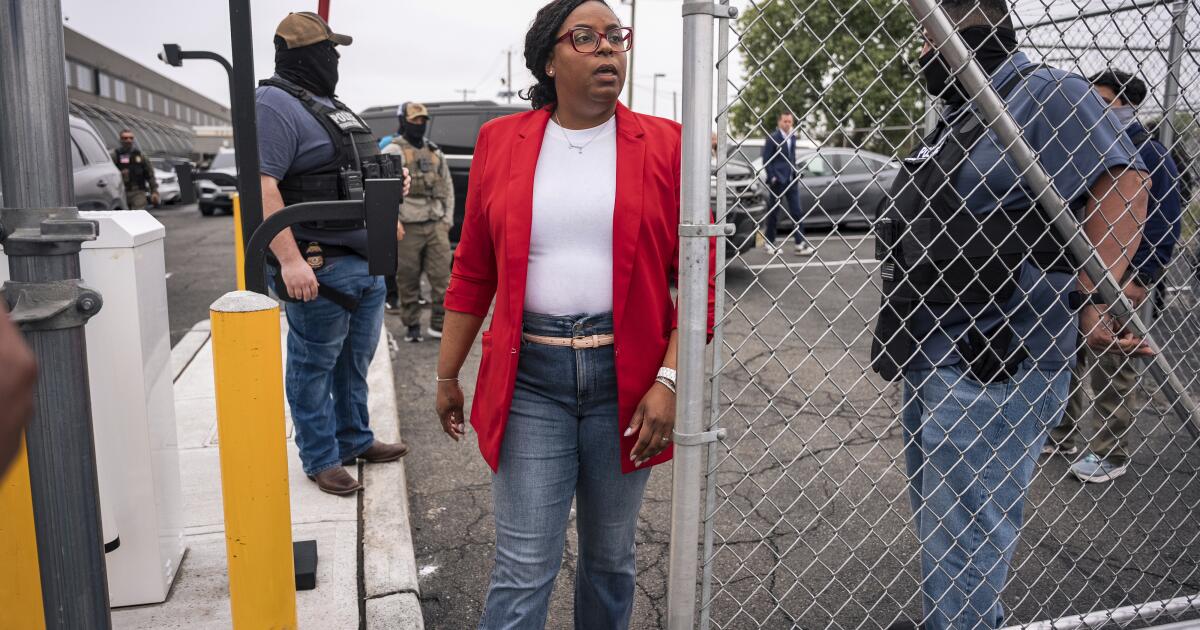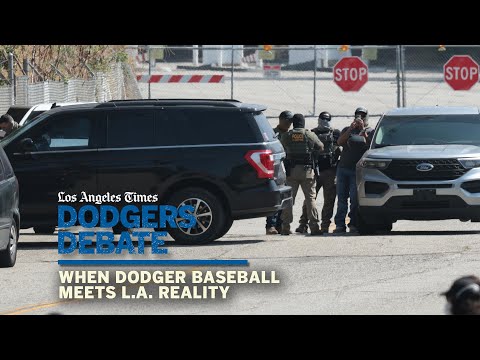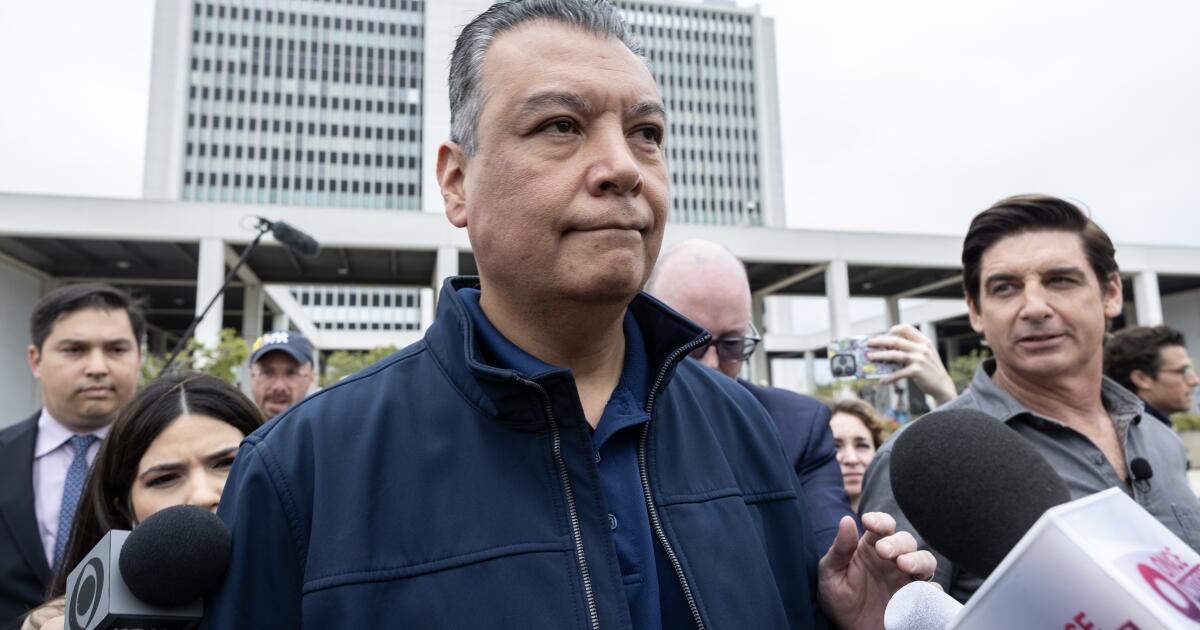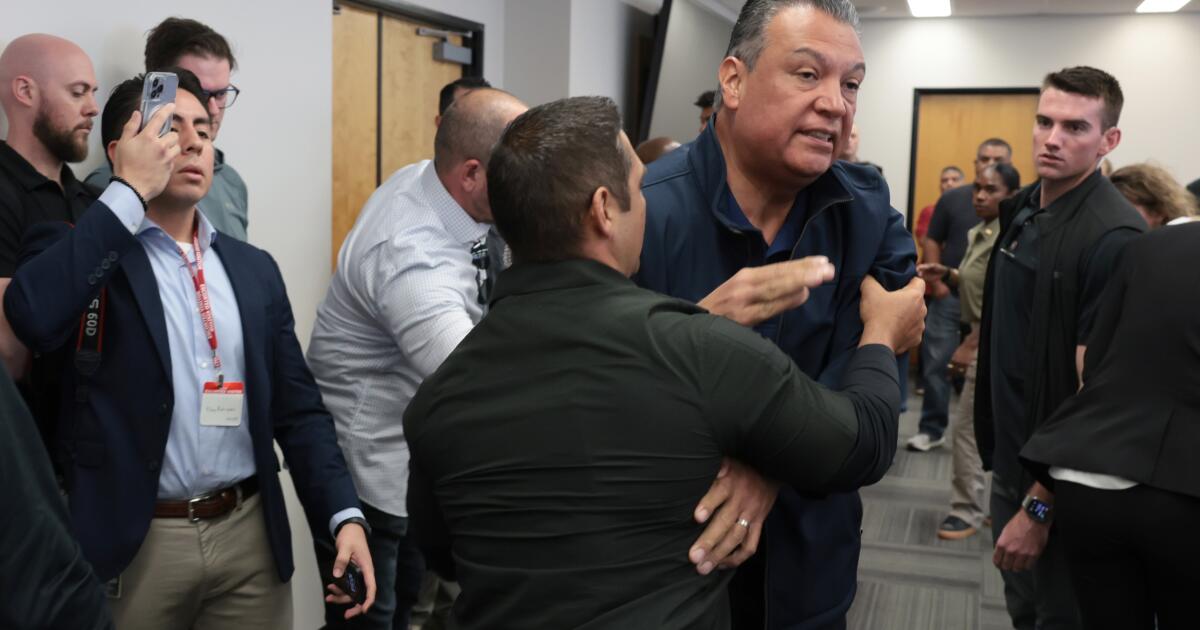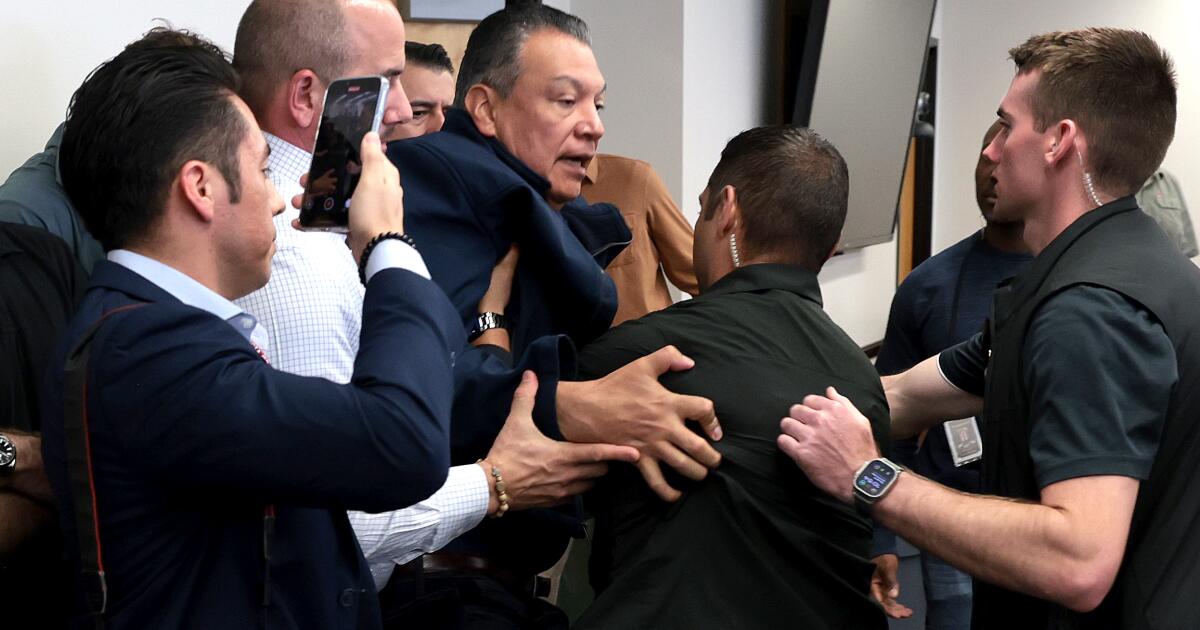Trump’s immigration crackdown brings checkpoints and new fears to Washington
WASHINGTON — Federal authorities have used checkpoints around the nation’s capital to screen vehicles, sometimes asking people for their immigration status after stopping them, as President Trump’s crackdown reaches the two-week mark in Washington.
The use of checkpoints, which can be legally controversial, is the latest indication that the White House’s mass deportation agenda is central to its assertion of federal power in Washington. Federal agents and hundreds of National Guard troops have surged into Washington this month, putting some residents on edge and creating tense confrontations in the streets.
The city’s immigrant population, in particular, is rattled. A daycare was partially closed on Thursday when staff became afraid to go to work because they heard about federal agents nearby. An administrator asked parents to keep their children at home if possible.
Other day cares have stopped taking kids on daily walks because of fears about encountering law enforcement.
D.C. Mayor Muriel Bowser acknowledged Thursday that the proliferation of traffic checkpoints are an inevitable aspect of the federal law enforcement operations.
“The surge of federal officers is allowing for different types of deployments, more frequent types of deployments, like checkpoints,” Bowser said.
Since Aug. 7, when Trump began surging federal agents into the city, there have been 630 arrests, including 251 people who are in the country illegally, according to the White House. Trump has been ratcheting up the pressure since then, seizing control of the D.C. police department Aug. 11 and deploying more National Guard troops, mostly from Republican-led states.
Soldiers have been largely stationed in downtown areas, such as monuments on the National Mall and transit stations.
However, federal agents are operating more widely through the city — and some may soon get a visit from the president himself.
Trump is expected to join a patrol in D.C. on Thursday night. He told his plans to Todd Starnes, a conservative commentator.
Not a normal traffic stop
On Thursday morning, as Martin Romero rode through Washington’s Rock Creek Park on his way to a construction job in Virginia, he saw police on the road up ahead. He figured it was a normal traffic stop, but it wasn’t.
Romero, 41, said that U.S. Park Police were telling pickup trucks with company logos to pull over, reminding them that commercial vehicles weren’t allowed on park roads. They checked for licenses and insurance information, and then U.S. Immigration and Customs Enforcement agents came over.
Romero said there were two agents on one side of his truck and three on the other. He started to get nervous as the agents asked where they were from and whether they were in the country illegally.
“We just came here to work,” Romero said afterward. “We aren’t doing anything bad.”
Two people in his truck were detained and the agents didn’t give a reason, he said. He also saw three other people taken from other vehicles.
“I feel really worried because they took two of our guys,” he said. “They wouldn’t say where they’re taking them or if they’ll be able to come back.”
Romero said he called his boss, who told him to just head home. They wouldn’t be working today.
Enrique Martinez, a supervisor at the construction company, came to the scene afterward. He pondered whether to call families of the detained men.
“This has never happened to our company before,” Martinez said. “I’m not really sure what to do.”
Checkpoints are legal, to a point
The Supreme Court has upheld the use of law enforcement and government checkpoints for specific purposes, such as for policing the border and for identifying suspected drunk drivers.
But there are restrictions on that authority, especially when it comes to general crime control. Jeffrey Bellin, a former prosecutor in Washington and professor at Vanderbilt Law School who specializes in criminal law and procedures, said the Constitution doesn’t allow “the government to be constantly checking us and stopping to see if we’re up to any criminal activity.”
He said checkpoints for a legally justifiable purpose — like checking for driver’s licenses and registrations — cannot be used as “subterfuge” or a pretext for stops that would otherwise not be allowed. And though the court has affirmed the use of checkpoints at the border, and even some distance away from it, to ask drivers about immigration status, Bellin said it was unlikely the authority would extend to Washington.
Anthony Michael Kreis, a professor at Georgia State College of Law, said the seemingly “arbitrary” and intrusive nature of the checkpoints in the capital could leave residents feeling aggrieved.
“Some of the things could be entirely constitutional and fine, but at the same time, the way that things are unfolding, people are suspicious — and I think for good reason,” he said.
From Los Angeles to D.C.
There are few places in the country that have been unaffected by Trump’s deportation drive, but his push into D.C. is shaping into something more sustained, similar to what has unfolded in the Los Angeles area since early June.
In Los Angeles, immigration officers — working with the Border Patrol and other federal agencies — have been a near-daily presence at Home Depots, car washes and other highly visible locations.
In a demonstration of how enforcement has affected routines, the bishop of San Bernardino formally excused parishioners of their weekly obligation to attend Mass after immigration agents detained people on two parish properties.
Immigration officials have been an unusually public presence, sending horse patrols to the city’s famed MacArthur Park and appearing outside California Gov. Gavin Newsom’s news conference last week on congressional redistricting. Authorities said an agent fired at a moving vehicle last week after the driver refused to roll down his window during an immigration stop.
The National Guard and Marines were previously in the city for weeks on an assignment to maintain order amid protests.
A federal judge blocked the administration from conducting indiscriminate immigration stops in Southern California but authorities have vowed to keep the pressure on.
Megerian and Martin write for the Associated Press. AP writers Eric Tucker and Ashraf Khalil in Washington and Elliot Spagat in San Diego contributed to this report.
